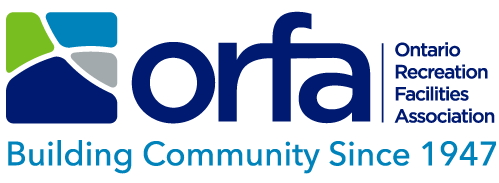- ORFA Home
- The Recreation Facility Profession
- Meet Our Members
- Jordan Durocher, Township of Whitewater Region
Jordan Durocher
Manager, Parks and Recreation, Township of Whitewater Region
Share some of your most memorable career-related experiences My most recent memorable experience was when I was given the opportunity to dive into the facility world. Our municipality decided to oversee the operations of our arenas located in the Township. My position shifted and began to focus on facility operations. With a background in special events/programming, and being around and in recreational facilities, this was an element of recreation, I was unfamiliar with but ready to take on a new challenge. However, part of that experience was attending my first professional development event at the University of Guelph. The networking, information and best practices shared was a highlight. Two other memorable experiences were when the municipality I was previously employed with was selected as a host community for the 2010 Olympic Torch Run, with a winter outdoor event, hosting the torch as it made its way west to Vancouver and being the winner of the 2011 Kraft Celebration Tour. The Kraft Celebration Tour was available, live on a TSN broadcast, hosted on our municipal beach. The community support was overwhelming, and both our outdoor and indoor facilities were showcased during the event on national television. What would you describe as some of the most significant workplace and/or industry challenges you have faced over the past five years? Keeping up with legislation can be challenging at times and can directly impact the bottom line. It is forever changing and helps shape the overall world of recreation with training opportunities, awareness, and competencies in the workplace. The budget process can be challenging at times; budgeting for small municipalities with significant infrastructure will always have its challenges as we are a soft service with hard infrastructure. Recreation facilities tend to be the heartbeat of communities, while large pieces of infrastructure can be costly to repair and replace. Budgeting for small municipalities forces you to become creative in your financial responsibilities and can allow, at times, for some leveraging. Most recently, COVID-19 has created many challenges for recreation facilities with loss of revenue and spiked expenses. We are now experiencing a new re-form of cleaning responsibilities and health and safety procedures. We need to view this process as a marathon, not a sprint. How has your involvement with the ORFA affected your career? My involvement with the ORFA has positively affected my career in various ways. Still, most importantly, it has given me a foundation of knowledge for facility operations, leadership, best practices, legislation, and awareness of safety. It’s about staying connected as professionals in this industry. ORFA has done an excellent job at this through a variety of training platforms, online information with access to best practices and guidelines, podcasts, social media, and facilitators who are well rounded and knowledgeable. The training provided by the ORFA is generally adaptive. Each community can adopt it through the lens of management, supervisors, and a variety of staffing roles. We’re all in this together, and we are never too old to learn in this industry.List any best practices or tips learned at an ORFA professional development opportunity. The list of best practices and tips is a long list and hard only to select a few, but I have enjoyed building on the foundation of my day-to-day work with the networking opportunities I have secured. Health and safety have always been important to me, and I enjoy continuing the momentum of safe practices for all. It seems endless, but important for everyone. I also quickly realized that professional development promotes the sharing of information, which improves skill sets and, more importantly, competencies in the workplace. I once heard someone say in an ORFA training session, “Would you rather a weak employee stay with you for their entire career, or invest in them with training opportunities and get the best five years of service out of them before seeing them take another job.’ Further to this, ORFA is the leader in best practices. The resources available to members are overwhelmingly helpful, and you can alter any of the training to the scope of your positions. What advice would you provide to colleagues considering teaching or mentoring within the industry? I would highly encourage anyone thinking about teaching or mentoring to move forward with it. Teaching is a skill set, and our industry could always use more of it. Our industry is not about re-creating the wheel; it’s about adding the necessary spokes to your wheel, passed on from other knowledgeable mentors and communities. To succeed in our world, we need to be able to share knowledge, best practices and how we can hone in on the successes of other communities and make them our successes too. Final Thoughts As I write this on an unseasonable day in June - we are in a limbo of the many effects COVID-19 will bring forward to communities, facility operations and our bottom lines. In these trying and strange times, there will be change – embracing that change as an opportunity for the betterment of your community and recreation facilities will only benefit everyone. The more we embrace change, the more change becomes the norm. | In this section |
